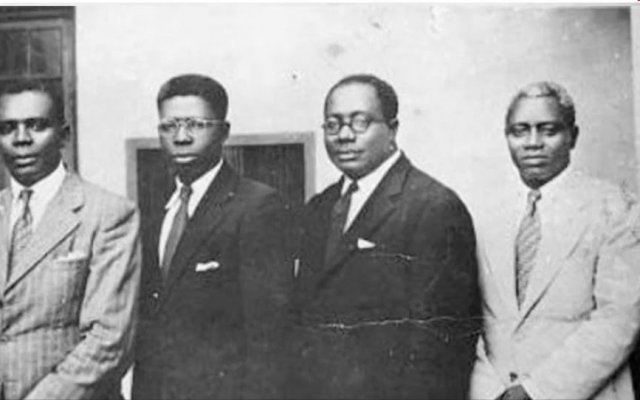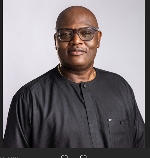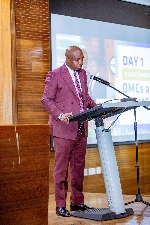Why 'Founder's Day' or 'Founders' Day' is not necessary
Feature Article

Ever since Ghana attained her political independence on March 6, 1957, the struggle for economic independence has become muddled for various reasons.
One of such reasons, in my view, is because the leaders of our country have been caught up in the complacency, dependency and ideological struggle syndrome.
The main issue that led to the formation of the first political movement, the United Gold Coast Convention (UGCC) and the subsequent Convention Peoples Party (CPP) was the poor living conditions of the people in the then Gold Coast, now Ghana.
It was the poor economic conditions that necessitated the struggle for political independence from the colonial masters, whose policies and programmes never benefitted the large mass of the ordinary people of the Gold Coast.
Unfortunately, however, successive governments after independence have done little to change the lives of Ghanaians. The real economic issues that faced the country over the years have not been attended to.
It is increasingly clear that the leaders of our country lack the revolutionary spirit and the clout to transform the very poor economic conditions in the country to a level of satisfaction where every household can afford at least three square meals a day.
In sharp contrast, ideological struggles related to whether the country was founded by one man or a group of people have taken the entire being of our leadership over the years.
It is worth noting that after Osagyefo Dr. Kwame Nkrumah and the other leading members of the struggle fought and attained political independence, the most important problem they were preoccupied with was the economic conditions that had bedevilled the nation which they resolved to achieve by starting economic policies and programmes that were intended to benefit Ghanaians.
In recent times, government policies have been drawn without the suffering Ghanaians in mind, the nation's resources have been exploited with reckless abandon by the rich at the expense of the poor, decisions are made to benefit the political class, there is no accountability or transparency and justice and fairness are seen lacking. Yet present-day governments have been totally engrossed with the issue of which people are recognised as the founders of our country and which ideology is better than the other to lead our country.
The accumulative effect of all the negative approach to leadership in the country has seriously corroded the cohesive fabric of the relationship between governments on one hand and the well-meaning citizens on the other. It is about time something is done to reverse and to improve the situation. To make it work, we need the government's resolve and drive.
Another very important social problem which has unfortunately escaped government's attention is the huge unemployment that has plagued the nation, denying the teeming youth of a secured future.
Governments that have been given the mantle of leadership of our nation must be intentional in the decisions they make in order to correct and delete the wrongs of the past to improve the situation not only for themselves but for everybody; the educated or the illiterate, the poor or the well-to-do, the weak or the strong.
In short, they must resolve to cultivate a sense of inclusiveness, transparency, fairness, accountability and belongingness in Ghana. Because it is only if we understand the mistakes of the past can we hope to design better policies that are likely to be effective and beneficial to us all now and in the future.
We cannot continue to wade into the almost useless argument of who is recognised as the founder or founders of Ghana while the real issues relating to unemployment, poverty, poor sanitation and the likes have been relegated to the background.
The argument about the founding fathers is not necessary now. What is necessary is for us to work selflessly to make our country great and strong for us and even more importantly for the generations yet to come.
We must not forget that posterity will judge us for every decision we make not in the interest of our nation. Our country deserves better than we are offering it now.
By: Bright Afele
One of such reasons, in my view, is because the leaders of our country have been caught up in the complacency, dependency and ideological struggle syndrome.
The main issue that led to the formation of the first political movement, the United Gold Coast Convention (UGCC) and the subsequent Convention Peoples Party (CPP) was the poor living conditions of the people in the then Gold Coast, now Ghana.
It was the poor economic conditions that necessitated the struggle for political independence from the colonial masters, whose policies and programmes never benefitted the large mass of the ordinary people of the Gold Coast.
Unfortunately, however, successive governments after independence have done little to change the lives of Ghanaians. The real economic issues that faced the country over the years have not been attended to.
It is increasingly clear that the leaders of our country lack the revolutionary spirit and the clout to transform the very poor economic conditions in the country to a level of satisfaction where every household can afford at least three square meals a day.
In sharp contrast, ideological struggles related to whether the country was founded by one man or a group of people have taken the entire being of our leadership over the years.
It is worth noting that after Osagyefo Dr. Kwame Nkrumah and the other leading members of the struggle fought and attained political independence, the most important problem they were preoccupied with was the economic conditions that had bedevilled the nation which they resolved to achieve by starting economic policies and programmes that were intended to benefit Ghanaians.
In recent times, government policies have been drawn without the suffering Ghanaians in mind, the nation's resources have been exploited with reckless abandon by the rich at the expense of the poor, decisions are made to benefit the political class, there is no accountability or transparency and justice and fairness are seen lacking. Yet present-day governments have been totally engrossed with the issue of which people are recognised as the founders of our country and which ideology is better than the other to lead our country.
The accumulative effect of all the negative approach to leadership in the country has seriously corroded the cohesive fabric of the relationship between governments on one hand and the well-meaning citizens on the other. It is about time something is done to reverse and to improve the situation. To make it work, we need the government's resolve and drive.
Another very important social problem which has unfortunately escaped government's attention is the huge unemployment that has plagued the nation, denying the teeming youth of a secured future.
Governments that have been given the mantle of leadership of our nation must be intentional in the decisions they make in order to correct and delete the wrongs of the past to improve the situation not only for themselves but for everybody; the educated or the illiterate, the poor or the well-to-do, the weak or the strong.
In short, they must resolve to cultivate a sense of inclusiveness, transparency, fairness, accountability and belongingness in Ghana. Because it is only if we understand the mistakes of the past can we hope to design better policies that are likely to be effective and beneficial to us all now and in the future.
We cannot continue to wade into the almost useless argument of who is recognised as the founder or founders of Ghana while the real issues relating to unemployment, poverty, poor sanitation and the likes have been relegated to the background.
The argument about the founding fathers is not necessary now. What is necessary is for us to work selflessly to make our country great and strong for us and even more importantly for the generations yet to come.
We must not forget that posterity will judge us for every decision we make not in the interest of our nation. Our country deserves better than we are offering it now.
By: Bright Afele
Source: David Apinga
Trending Features

A vindicated Zoomlion?
03:12
Oti Region: Ghana’s emerging growth frontier
20:17
Russia’s stance: “For freedom of nations”
10:02
NPA’s regulatory drive strengthens under Edudzi Kudzo Tameklo in eleven months
09:23
Amid record funding, critical gaps loom over Ghana’s 2026 health budget
15:21
Is the Special Prosecutor independent?
00:57
Africa’s Bold Stand: Mali’s victory and Ghana’s resolve should be the blueprint
13:50



